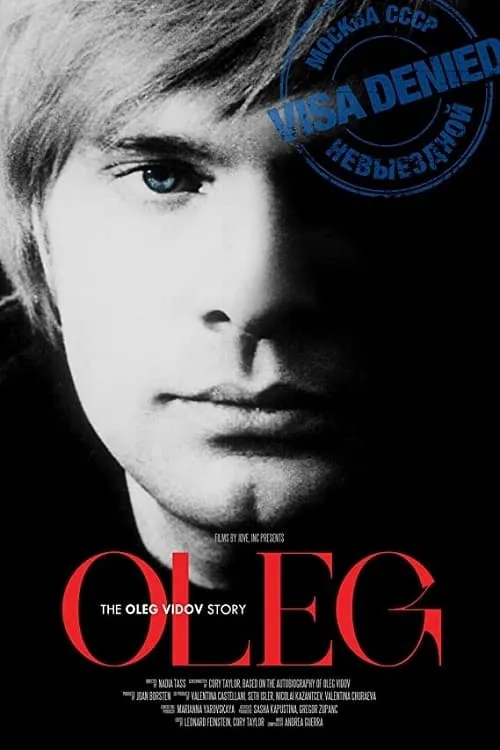Oleg: The Oleg Vidov Story

Plot
Oleg: The Oleg Vidov Story is a biographical drama film that delves into the life of Oleg Vidov, a celebrated actor from the Soviet Union who experienced a tumultuous journey, facing persecution, blacklisting, and personal struggles before ultimately finding success in the West. Born in 1943, Oleg Vidov hails from the Soviet Union, where his family's background and social status would influence his professional trajectory. His father, Anatoli Vidov, was a renowned actor in his own right, who served as a prominent figure in the Soviet theatre scene. The young Oleg grew up in the shadow of his illustrious father, learning the intricacies of acting from a very early age. As Oleg's talent began to bloom, he pursued a career in acting, eventually enrolling in the prestigious Gerasimov Institute of Cinematography in Moscow. After completing his studies, he went on to hone his craft, landing roles in various Soviet films and television productions. At this stage in his life, Oleg's career began to gain traction, and he quickly became a respected figure within the Soviet acting community. However, Oleg's association with his father, who was increasingly critical of the Soviet regime's policies, placed him at odds with the authorities. As the Soviet Union's grip on artistic expression tightened, Oleg found himself at the crosshairs of persecution. He was targeted by government agents who scrutinized his performances, labeling them as "ideologically incorrect." Fearing for his safety and career prospects, Oleg took cautious steps to distance himself from his father, yet ultimately couldn't escape the long arm of the law. As Oleg's troubles intensified, he received an invitation to represent the Soviet Union at the 1979 Cannes Film Festival. While this opportunity seemed like a chance for him to showcase his talents on an international stage, he soon realized it was, in fact, a calculated move by the government to showcase him as a token of their supposed commitment to artistic freedom. During the festival, Oleg met and befriended American actor and filmmaker, Paul Mazursky, who would later play a pivotal role in his decision to defect to the United States. Upon returning to Moscow, Oleg received a letter from the Soviet Union's Ministry of Culture, informing him that his passport had been confiscated due to his "subversive" activities. Realizing the gravity of the situation and fearing for his life, Oleg made the bold decision to defect to the West, where he hoped to establish a new life and continue his acting career free from government interference. Crossing over into Austria on a flight to the United States in 1980, Oleg's world changed dramatically. With Paul Mazursky by his side, he navigated the complexities of American customs and language barriers, eventually landing a role in Mazursky's 1981 film, 'An Englishman Abroad.' As he began to settle into his new life in the United States, Oleg found an opportunity to rediscover himself as an artist and to explore themes that had previously been suppressed by the Soviet regime. As his fame grew in the American film industry, Oleg never forgot his roots or the struggles he had faced. Throughout his journey, he remained steadfast in his commitment to using his platform to advocate for artists' rights and to tell stories that resonated with audiences worldwide. The film, 'Oleg: The Oleg Vidov Story,' brings this compelling narrative to life, capturing the essence of Oleg Vidov's remarkable life – a testament to the human spirit's capacity for resilience in the face of adversity. As a cinematic tribute to Oleg Vidov's remarkable journey, the film sheds light on a bygone era, illuminating the dark underbelly of artistic persecution and highlighting the enduring power of art to transcend boundaries and unite people across the globe.
Reviews
Recommendations


